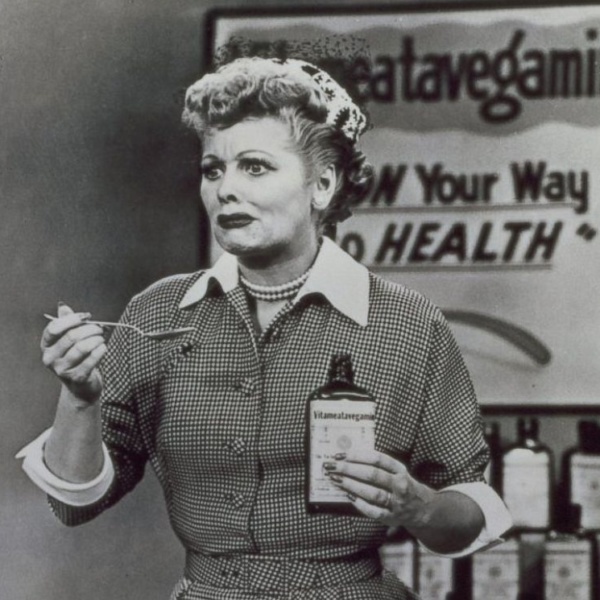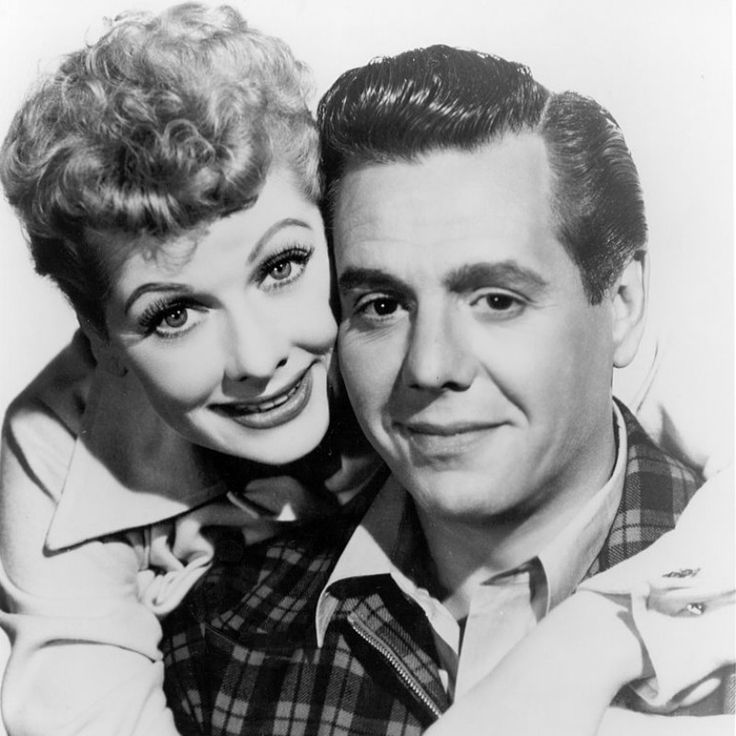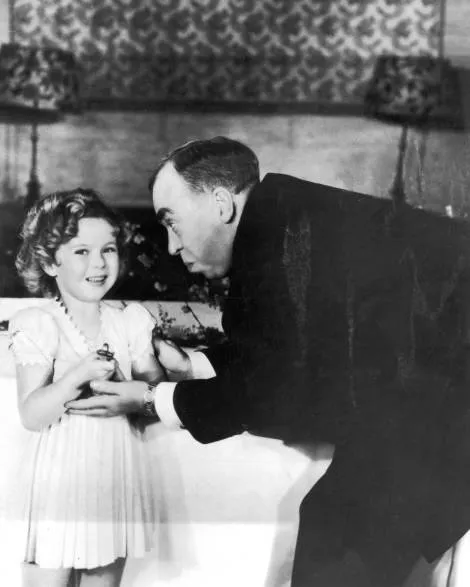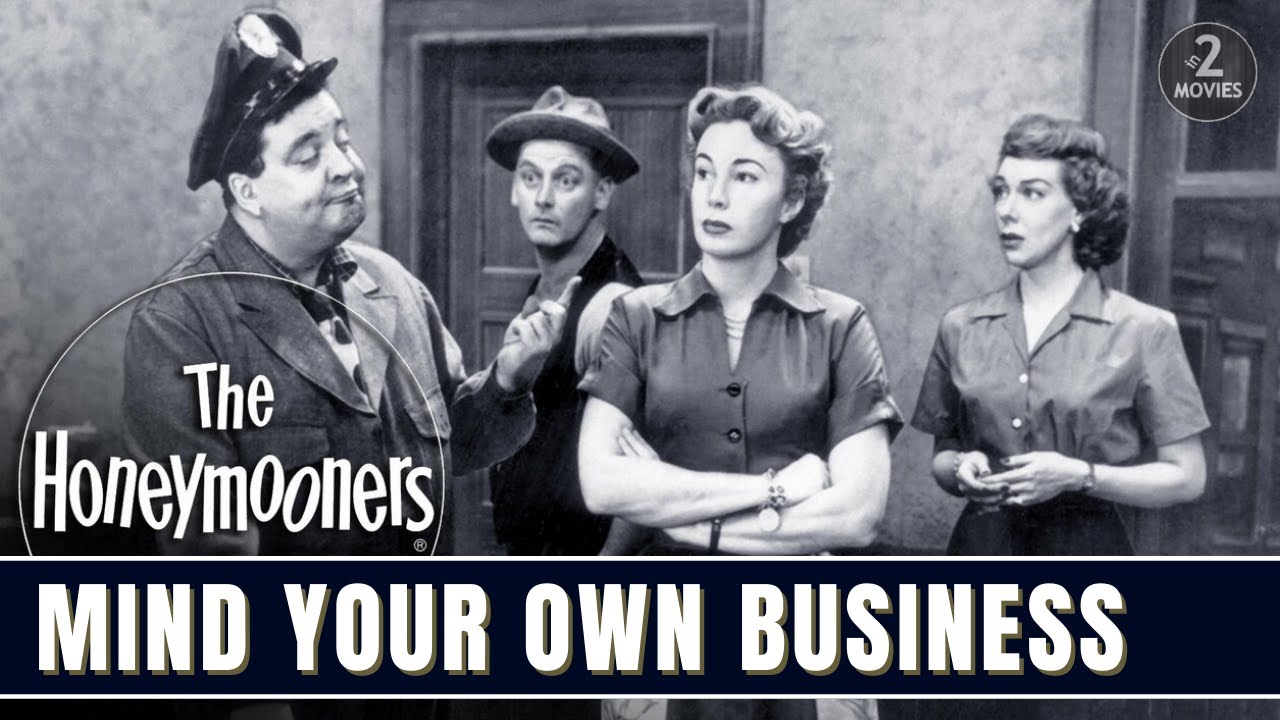Television history is filled with iconic shows that have left a lasting impact on popular culture. Among these, "I Love Lucy" stands as a shining example of timeless entertainment that has charmed generations since its debut in 1951. Created by Lucille Ball and Desi Arnaz, the show remains a beloved classic that broke new ground in the world of comedy and television. This article explores the enduring appeal and cultural significance of "I Love Lucy," a sitcom that continues to win the hearts of viewers more than six decades after its original broadcast.
(Scroll down for the video)

The Birth of "I Love Lucy"

"I Love Lucy" made its television debut on October 15, 1951, and quickly became a cultural phenomenon. The show was a product of the creative partnership between the series' stars, Lucille Ball and Desi Arnaz, and their production company, Desilu Productions. Lucille Ball, already a well-known actress, played the titular character, Lucy Ricardo, while her real-life husband, Desi Arnaz, portrayed Ricky Ricardo, Lucy's on-screen spouse.
One of the groundbreaking aspects of "I Love Lucy" was the decision to use a live studio audience, setting a new standard for television comedy. This gave the show a unique energy, with the cast responding to the audience's laughter and applause. The series' trademark format featured a mixture of live performances and pre-recorded segments, which allowed for the use of multiple camera angles and seamless editing. This innovation played a pivotal role in the show's success and still influences sitcom production techniques today.
The Charismatic Cast

"I Love Lucy" would not have been the same without its charismatic and talented cast. Lucille Ball was a comedic genius who brought the character of Lucy Ricardo to life with her impeccable timing, slapstick comedy, and ability to make audiences laugh with her expressive facial expressions. Desi Arnaz was the perfect foil to Lucy, playing the role of her exasperated but loving husband, Ricky. Their on-screen chemistry was palpable, as was the real-life affection between the two actors.
Vivian Vance and William Frawley rounded out the cast as Ethel and Fred Mertz, the Ricardos' best friends and landlords. Their dynamic added depth to the show, providing both comedic support and contrast to Lucy and Ricky's relationship. Vance and Frawley's performances earned them the admiration of fans and cemented their places in television history.
Groundbreaking Storytelling

"I Love Lucy" was known for its innovative storytelling and use of physical comedy. One of the most memorable episodes, "Job Switching," featured Lucy and Ethel taking on menial jobs at a candy factory, with hilariously disastrous results. This episode, in particular, showcased the show's ability to use slapstick humor to tackle social issues and provide commentary on gender roles in the 1950s.
The series was also groundbreaking for its depiction of pregnancy. When Lucille Ball became pregnant with her second child, the writers decided to incorporate her pregnancy into the show, making Lucy Ricardo one of the first pregnant characters on television. This decision was met with some resistance from network executives, but it ultimately resulted in one of the most famous episodes, "Lucy Is Enceinte," which drew record-breaking viewership and set a precedent for addressing real-life events in a comedic context.
Lucille Ball: A Pioneer in Comedy

Lucille Ball, often referred to as the Queen of Comedy, was not just a gifted actress but also a pioneering figure in the world of entertainment. She was not only the star of "I Love Lucy" but also a co-owner of Desilu Productions, which produced the show. Her role as a successful female producer and businesswoman in the male-dominated industry of the 1950s was groundbreaking.
Lucille Ball's influence extended beyond her work in front of the camera. She used her clout to push for the use of multi-camera filming, which has become the standard for sitcoms. Her entrepreneurial spirit led to the creation of Desilu, which went on to produce other popular shows like "The Untouchables" and "Star Trek." Ball's legacy as a trailblazer in the entertainment industry continues to inspire aspiring actors and producers to this day.
The Cultural Impact

"I Love Lucy" was more than just a TV show; it was a cultural phenomenon. The characters and catchphrases from the series, such as "Lucy, you've got some 'splainin' to do!" and "Vitameatavegamin," have become part of the American lexicon. The show's influence extended to fashion, as Lucy's signature red hair and vintage style have inspired countless Halloween costumes and retro fashion trends.
One of the most enduring legacies of "I Love Lucy" is its ability to transcend time and cultural barriers. The humor in the show is universal, appealing to audiences of all ages and backgrounds. Despite being set in the 1950s, the themes of love, friendship, and the pursuit of dreams remain relatable and timeless.
The Unforgettable Episodes

The show's enduring appeal is due in no small part to its memorable episodes. While it's challenging to highlight just a few, here are some iconic moments from "I Love Lucy":
"Lucy Does a TV Commercial" (Vitameatavegamin): This episode is a comedy classic. Lucy's bungled attempt to promote a health tonic is a masterclass in physical comedy and timing. Lucille Ball's comedic genius shines brightly in this episode.

"Chocolate Factory" (Job Switching): As mentioned earlier, this episode is a fan favorite, featuring Lucy and Ethel hilariously attempting to keep up with a fast-paced chocolate factory assembly line.
"Hollywood at Last" (Hollywood): In this memorable two-part episode, the Ricardos and Mertzes head to Hollywood, where Lucy gets into a series of comic mishaps with celebrities such as William Holden and John Wayne.

"Lucy Is Enceinte" (The Baby): This groundbreaking episode, in which Lucy reveals her pregnancy, was a landmark moment in television history. The episode masterfully blends humor and heart, reflecting real-life events in a sensitive yet comedic manner.
"I Love Lucy" and Social Change

"I Love Lucy" also played a significant role in challenging and shaping social norms of the era. The show's portrayal of an interracial marriage between Lucy and Ricky Ricardo was groundbreaking, as it was one of the first times such a relationship was depicted on television. The portrayal of Lucy and Ricky as a loving and successful couple helped to challenge stereotypes and promote tolerance.
Additionally, "I Love Lucy" subtly tackled women's issues and the role of women in the 1950s. While Lucy was a housewife, her character frequently sought her own ambitions and interests, often leading to comic escapades. This provided a subtle but influential commentary on women's aspirations and their struggle for personal fulfillment.
Legacy and Recognition

"I Love Lucy" continues to receive acclaim and recognition long after its original broadcast. The show won several Emmy Awards during its run and is considered one of the greatest TV series of all time. In 2012, the Writers Guild of America named it the "Best Written TV Series of All Time."
The enduring popularity of "I Love Lucy" led to spin-offs, including "The Lucy-Desi Comedy Hour," and various revival projects, keeping the legacy of Lucy and Ricky alive for new generations of viewers.
The Laughs Live On

One of the remarkable aspects of "I Love Lucy" is its ability to continue making audiences laugh, even after more than six decades. The show's timeless humor, relatable characters, and universal themes of love and friendship ensure its enduring appeal. Thanks to reruns, streaming services, and dedicated fans, "I Love Lucy" remains as relevant today as it was in the 1950s.
Conclusion

"I Love Lucy" is not just a television show; it's a cherished piece of American cultural history. Its combination of groundbreaking storytelling, unforgettable characters, and the comedic genius of Lucille Ball has solidified its place in the pantheon of classic television. The show's influence on the medium, its impact on social norms, and its ability to continue bringing joy to new generations of viewers make it a timeless and treasured part of the television landscape. As long as there are televisions and audiences who appreciate laughter and heart, Lucy, Ricky, Ethel, and Fred will continue to charm and entertain us, proving that "I Love Lucy" is not just a show, but a cherished friend that will always hold a special place in our hearts.



